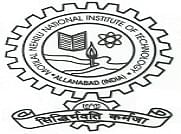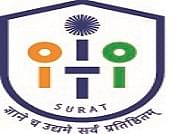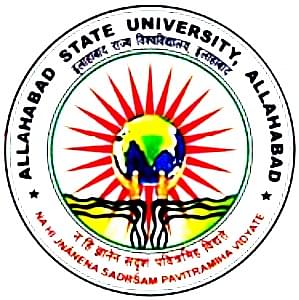Introduction about Ph. D Zoology
Ph.D. in Zoology from best college is
an advanced academic degree program that focuses on the scientific study of
animals and their behaviours, physiology, ecology, evolution, and conservation.
It is a rigorous and research-intensive program designed for individuals
passionate about understanding the diversity and complexities of the animal
kingdom.
In a Ph.D. program
in Zoology, students delve into a wide range of topics within the field,
ranging from molecular biology and genetics to organismal biology, ecology, and
biodiversity conservation. They engage in original research projects,
contribute to the advancement of knowledge in their chosen area of
specialization, and prepare for careers in academia, research institutions,
government agencies, conservation organizations, and other sectors.
The
interdisciplinary nature of Zoology allows students to explore connections
between animals and their environments, as well as interactions with other
organisms and ecosystems. They may investigate questions related to animal
behaviour, physiology, anatomy, genetics, ecology, evolution, and the impacts
of human activities on wildlife populations and habitats.
Ph.D. candidates in
Zoology typically work closely with faculty advisors and mentors who provide
guidance and support throughout their research journey. They conduct fieldwork,
laboratory experiments, data analysis, and scientific writing to develop a deep
understanding of their research topic and contribute novel insights to the
scientific community.
Graduates of Ph.D.
programs in Zoology are equipped with advanced research skills, critical
thinking abilities, and specialized knowledge that prepares them for diverse
career paths. They may pursue academic positions as professors or researchers,
conduct independent research, lead conservation initiatives, contribute to
policy development, or apply their expertise in industries such as
biotechnology, pharmaceuticals, environmental consulting, and science
communication.
Overall, a Ph.D. in
Zoology offers an exciting opportunity for individuals to explore their
curiosity about the natural world, make significant contributions to scientific
knowledge, and address pressing challenges facing global biodiversity and
wildlife conservation.
What is admission process of Ph. D Zoology ?
The admission process 2024 for Ph.D.in Zoology typically
involves several steps, which may vary slightly depending on the institution
and country. Here's a general overview of the admission process:
Research Programs
and Institutions: Start by
researching universities and institutions that offer Ph.D. programs in Zoology.
Look for programs with faculty members whose research interests align with
yours and that have strong research facilities and resources in the field of
Zoology.
Eligibility
Criteria: Review the
eligibility criteria for admission to Ph.D. programs in Zoology at your chosen
institutions. Typically, you'll need a Master's degree in Zoology or a related
field from a recognized university. Some programs may also consider candidates
with exceptional undergraduate records directly into their Ph.D. programs,
bypassing the Master's degree requirement.
Entrance
Examination (if applicable):
Some institutions require candidates to take an entrance examination as part of
the admission process. The exam may test your knowledge in areas related to
Zoology, research aptitude, and general awareness. Check the specific
requirements of each institution regarding entrance exams.
Application Process: Once you've identified the programs you're
interested in, submit your application through the university's online
application portal or by mail. Prepare your application materials, which
typically include:
Academic
transcripts from previous degrees (Bachelor's and Master's)
Letters of
recommendation from academic or professional references
A statement of
purpose outlining your research interests, career goals, and reasons for
pursuing a Ph.D. in Zoology
A curriculum vitae
(CV) or resume
Any additional
documents or requirements specified by the institution
Interview (if
applicable): Some programs
may require shortlisted candidates to attend an interview as part of the
selection process. During the interview, you may discuss your research
interests, academic background, and potential fit for the program.
Selection: After reviewing all applications and
conducting interviews (if applicable), the university's selection committee
will make decisions regarding admission. Successful candidates will receive
admission offers, typically accompanied by details about enrollment procedures,
fees, and other relevant information.
Enrollment: If you receive an admission offer,
complete the enrollment process according to the instructions provided by the
institution. This usually involves accepting the offer, paying any necessary
fees, and registering for courses.
It's essential to
carefully review the admission requirements and deadlines for each institution
you're interested in and to prepare your application materials thoroughly.
Additionally, reaching out to faculty members in your area of interest can be
helpful for gathering more information about specific programs and
opportunities for research collaboration.
What is eligibility for Ph. D Zoology ?
The eligibility criteria for Ph.D. in Zoology can
vary depending on the institution offering the program and the specific
requirements of the department. However, here are some common eligibility
criteria you may encounter:
Educational
Background: Typically,
candidates are required to have a Master's degree in Zoology or a closely
related field from a recognized university. Some institutions may accept
candidates with exceptional academic records directly from a Bachelor's degree
program into their Ph.D. programs, bypassing the Master's degree requirement.
Minimum GPA: Many institutions have a minimum Grade
Point Average (GPA) requirement for admission to Ph.D. programs. The specific
GPA requirement may vary, but candidates are generally expected to have a
strong academic record in their previous coursework.
Entrance
Examination (if applicable):
Some universities require candidates to take an entrance examination as part of
the admission process. These exams may assess the candidate's knowledge in
areas related to Zoology, research aptitude, and general awareness. Check the
specific requirements of each institution regarding entrance exams.
Research Proposal: In addition to meeting academic
qualifications, candidates may be required to submit a research proposal
outlining their intended research topic, objectives, methodology, and potential
contributions to the field of Zoology. This proposal helps admission committees
evaluate the candidate's research aptitude and alignment with the program's
focus areas.
Letters of
Recommendation: Most Ph.D.
programs require applicants to submit letters of recommendation from academic
or professional references who can attest to their qualifications, research
potential, and suitability for doctoral studies.
Statement of
Purpose: Candidates are
often asked to submit a statement of purpose outlining their academic
background, research interests, career goals, and reasons for pursuing a Ph.D.
in Zoology at the institution.
Interview (if
applicable): Some programs
may require shortlisted candidates to attend an interview as part of the
selection process. During the interview, candidates may discuss their research
interests, academic background, and potential fit for the program.
It's essential to
carefully review the specific eligibility criteria and admission requirements
of each institution you're interested in, as they may vary. Additionally,
reaching out to the admissions office or program coordinator can provide you
with further clarification and guidance on the application process.
What is syllabus of Ph. D Zoology ?
The syllabus for Ph.D. in Zoology can vary significantly
depending on the institution offering the program, the specific research
interests of the student, and the requirements of the department. However, I
can provide a general overview of some common areas of study and coursework
that may be included in a Ph.D. program in Zoology:
Core Courses:
Advanced Topics in
Zoology: This course may cover a broad range of topics in zoology, including
animal behavior, ecology, evolution, genetics, physiology, and taxonomy. It
provides a foundation of knowledge for students to build upon in their
specialized research areas.
Research
Methodology in Biological Sciences: This course typically covers various
research methodologies used in biological sciences, including experimental
design, data analysis techniques, statistical methods, and ethical
considerations in research.
Specialized
Elective Courses:
Molecular Biology
and Genetics: Advanced study of molecular genetics, genomics, gene expression,
genetic variation, molecular evolution, and techniques such as PCR, DNA
sequencing, and gene editing.
Animal Behavior and
Ecology: In-depth exploration of animal behavior, behavioral ecology, social
behavior, communication, mating systems, foraging strategies, and ecological
interactions among species.
Comparative Anatomy
and Physiology: Comparative study of the anatomical and physiological
adaptations of animals across different taxa, including vertebrates and
invertebrates.
Conservation
Biology: Study of the principles and practices of conservation biology,
including biodiversity conservation, habitat restoration, population genetics,
and conservation strategies for endangered species.
Evolutionary
Biology: Advanced topics in evolutionary theory, mechanisms of evolution,
speciation, phylogenetics, evolutionary genomics, and adaptation to
environmental change.
Seminar Series:
Ph.D. programs
often include seminar series where students present their research findings,
discuss current topics in Zoology, and engage in scholarly discussions with
faculty and peers. This provides students with opportunities to receive
feedback on their research and to stay updated on the latest developments in
the field.
Independent
Research and Dissertation:
A significant
portion of the Ph.D. program is dedicated to independent research under the
guidance of a faculty advisor. Students conduct original research projects,
write a dissertation documenting their research findings, and defend their
dissertation orally in front of a committee of faculty members.
Teaching Practicum
(Optional):
Some programs may
offer opportunities for students to gain teaching experience through a teaching
practicum or assistantship. This experience can be valuable for students
pursuing academic careers or roles in education and outreach.
Prospective students should carefully review the curriculum and course offerings of each Ph.D. program to ensure alignment with their research interests and academic goals.












